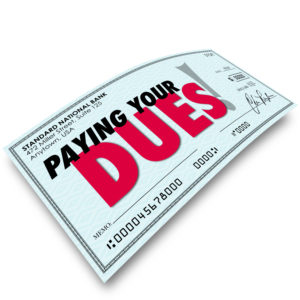Contents
CONDOMINIUM FEES IN MICHIGAN BANKRUPTCY: CONDO ASSOCIATION FEES GENERALLY
It is both a blessing and a curse that ownership of condominium home in Michigan comes with obligations to the condominium associations that come with them.

Bankruptcy can discharge condominium association dues in certain circumstances.
On one hand, condominium owners don’t need to worry about individual water utility bill payment, (common area) grass-cutting, whether or not their neighbors are going to hang a giant Confederate flag across the front of their homes, or whether they will leave unsightly abandoned cars in their front yards. Condominium owners can generally count on a residence within a neat, manicured community with well-paved driveways and parking lots and roofs and other exterior features in good states of repair.
On the other hand, condominium owners must pay for this convenience in the form of fees or dues to the (usually owner-owned) condominium. These fees may be charged monthly, semi-annually, or annually. There are additional fees and charges, additionally, in the form of one-time assessments for singular association expenses, such as a common roof repair.
The agreements and contracts you sign when you purchase a condominium obligate you to pay these fees. The condo association bylaws and resolutions may further obligate you.
Whether or not a condominium fee is legitimate depends upon whether the association is properly formed (some are unofficial associations formed after the development without the real power to charge fees to residents) and whether the fee is supported by the bylaws, rules, or resolutions.
However, assuming the fees are bona fide, are they subject to the bankruptcy Discharge Order in a Chapter 7 or Chapter 13 bankruptcy in Michigan?
CONDOMINIUM FEES AND BANKRUPTCY: SURRENDURING THE CONDO
As with debt for back rent, dischargeability of condo association fees in Chapter 7 or Chapter 13 bankruptcy depends upon whether you are talking about fees owed prior to the filing of the bankruptcy case or after the filing.
Dischargeability also depends upon whether you are continuing to reside in the condominium unit or you have surrendered it in the bankruptcy and have vacated the property.
As to that last point, if you’re surrendering your condominium in your Chapter 7 or Chapter 13 and have already vacated the property at the time of your bankruptcy case-filing, any condo association fees owed are totally dischargeable. They are treated as a low-priority unsecured debt, just like a credit card balance or hospital bill.
If you are surrendering your condo but have not yet moved out at the time that you file your bankruptcy case, you will discharge the balance of condominium association fees owed as of the date of filing—but will not discharge the fees owed for the time you continue to occupy the property after the date of filing of the bankruptcy case.
Thus, if you remain in the property for, say, 1 month after filing your Chapter 7 case, you will be obligated to pay 1 month of association fees.
CONDOMINIUM ASSOCIATION FEES IN MICHIGAN BANKRUPTCY: KEEPING THE CONDO
What if you owe condominium association fees and wish to remain in the property and maintain your ownership of the condo?
That is the stickier issue.
One of the basic truths regarding consumer bankruptcy is that it will discharge a person’s personal liability for debt but that it will not, with exceptions in the Chapter 13 context, affect a secured creditor’s rights to its collateral.
What does that mean?
It means, for example, that you can discharge your personal contractual obligation to make a mortgage payment every month, but it does not mean that you get your house for free. If you don’t make your mortgage payments after you file for bankruptcy, your mortgage lender can still foreclose on the house.
It means that, if you want to keep your car after filing for bankruptcy, you have to keep making the car payments.
With a condominium, what this means is that the condominium association, despite your technical discharge of the pre-filing condominium association fees in a Chapter 7 or Chapter 13 bankruptcy, still maintains a “statutory lien” on the property.
This “lien” is an encumbrance on the title of the condo that comes not from a mortgage contract that you sign by from a Michigan statute, a state law that says that the association has this right.
This means that, even if you can technically discharge your pre-filing association fees, if you want to keep the property, you must pay them.
If your arrears have piled up and the condo association has scheduled a foreclosure sale, you need to speak with a Michigan bankruptcy attorney immediately to discuss the filing of a Chapter 13 bankruptcy.
A Chapter 13 bankruptcy will, upon filing, halt the foreclosure sale and allow you to repay the past due condominium association fees over a period of 3-5 years, while keeping current on the ongoing fees.
Particularly if your association is motivated to foreclose by some level of personal animus, a Chapter 13 bankruptcy is one of the only guaranteed means of stopping a condo association foreclosure.
The Chapter 13 must be filed prior to the foreclosure sale, however, so time is of the utmost essence in this situation.
CONDOMINIUM FEES IN MICHIGAN BANKRUPTCY: THE BOTTOM LINE
Attorney Walter Metzen has represented thousands of consumers in Chapter 7 and Chapter 13 bankruptcy cases in Michigan. A Board Certified Bankruptcy Expert, Attorney Metzen has dealt with condominium associations and the fees they charge to residents for over 25 years.
If you are considering filing for bankruptcy and are shouldering condo association fees, it is vital that you consult with an experienced bankruptcy lawyer well before any foreclosure sale date.
The Law Offices of Walter A. Metzen & Associates offers free consultations for those interested in the bankruptcy process and is experienced in determining and advising as to the best course of action when filing a Chapter 7 or Chapter 13 bankruptcy in Michigan.




